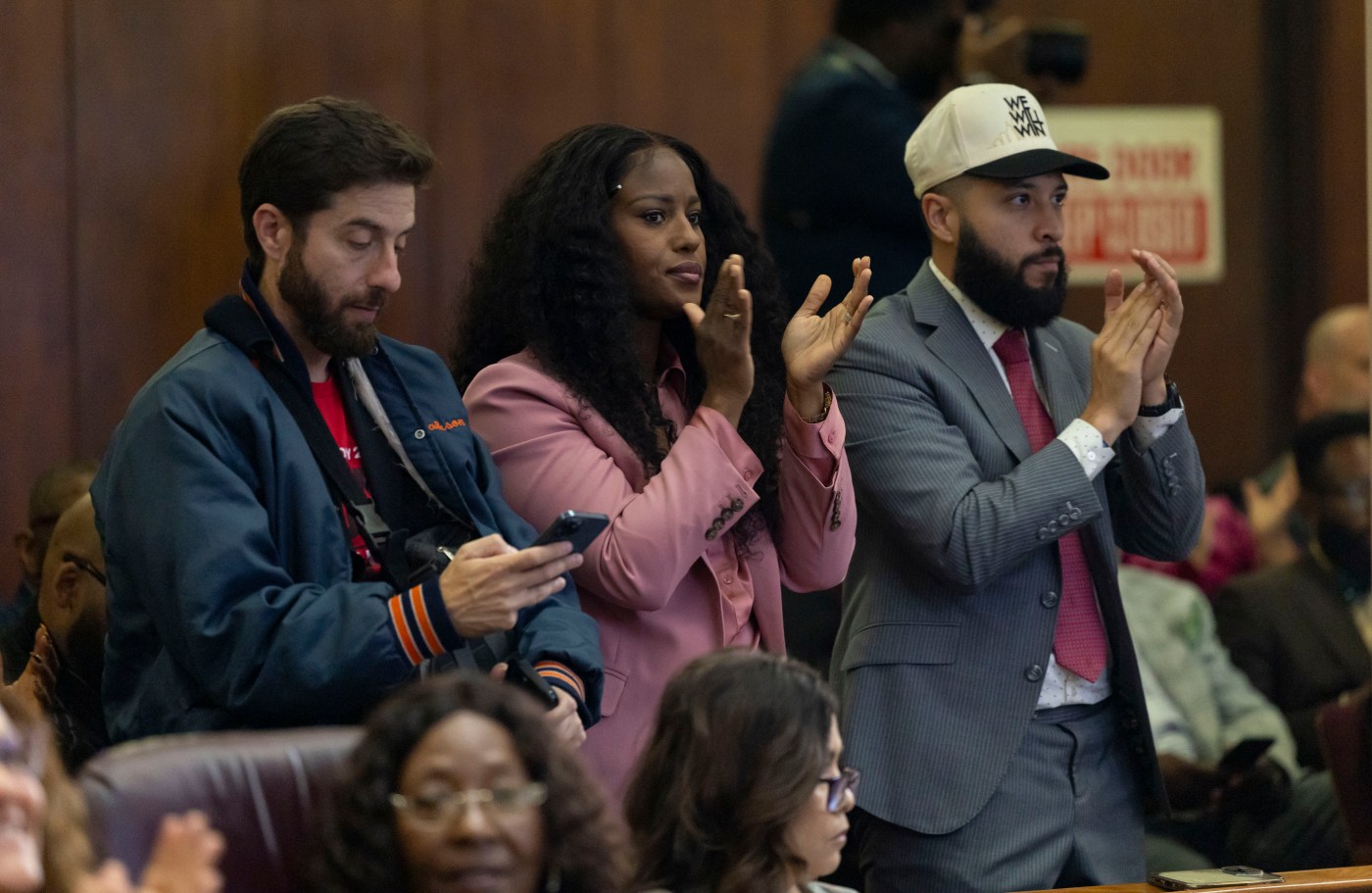Mayor Brandon Johnson’s new budget proposal recommends that the city declare a historic surplus of funds from special taxing districts, shoring up the finances of Chicago Public Schools (CPS) for the academic year.
The draft budget, unveiled Thursday, calls for the city to draw $1 billion from its Tax Increment Financing districts, or TIFs. More than half of that money is slated for CPS, covering the $379 million the district already anticipated and a controversial $175 million municipal pension payment.
This move marks a rare victory for CPS, allowing school officials to maintain their August spending plan—which relied heavily on TIF money—and spare classrooms from deeper cuts.
### Understanding TIF Funds and Surplus
The pooled funds from TIF districts—taxing areas drawn around the city—are intended for local development projects. However, when the TIFs expire or are declared to have a surplus, meaning there is an excess of funds not obligated to specific projects, the money is disbursed across local government bodies. CPS receives roughly 52% of the cut, while the city receives 23%. This year, that amounts to a potential $522 million for the district.
Before the Chicago Board of Education passed the district’s $10.25 billion budget in late August, school officials said they had received assurances from City Council that a declared TIF surplus would allocate at least $379 million to CPS. But questions remained over whether that record surplus would actually materialize, and the district lacked a clear backup plan.
CPS had also pledged to help the city cover the $175 million municipal pension payment for nonteaching employees—but only “contingent on additional revenue.” This payment had become a major point of contention. More than half of the recipients of the Municipal Employees’ Annuity and Benefit Fund are district staff. Up until 2020, the city footed the bill as required by state law. However, Johnson and his predecessor, former Mayor Lori Lightfoot, shifted the responsibility to CPS.
### Political Fallout and Budget Impact
The political back-and-forth over the pension payment contributed to the resignation of the entire school board last year and the subsequent firing of former CPS CEO Pedro Martinez. Johnson’s Thursday budget proposal offers some closure to this protracted debate—at least for now. It remains unclear who will assume liability in future budget seasons.
Chicago Board of Education member Michilla Blaise lauded the move at a Thursday morning press conference, noting it came from direct negotiations between some board members and the mayor’s office.
“The CPS budget passed in August was built on hope and balanced on paper, but not in reality,” Blaise said. “This commitment prevents any mid-year cuts and allows us to maintain stability in our classrooms. It also provides essential support for the pensions of CPS non-teaching personnel—the front line staff who clean our buildings, who feed our children and support our students who have the greatest needs.”
### Covering Additional Funding Gaps
The potential TIF revenue would also cover a canceled $8 million federal grant. Last month, the U.S. Department of Education’s Office for Civil Rights announced it would withhold the funds after CPS refused to end its Black Student Success Program, which Trump administration officials claimed violates federal antidiscrimination laws.
Blaise said the extra revenue helps maintain those inclusivity programs facing government criticism. “Despite pressure from the White House, this agreement is essentially Trump-proofing the CPS budget,” she said.
### Next Steps and Reactions
City Council must approve Johnson’s budget by December 31. Aldermen could still object to declaring such a large TIF surplus, as the funds are intended to drive redevelopment in their wards. However, in August, the majority signed a letter committing to a substantial surplus to help CPS.
Educational nonprofit Kids First Chicago applauded the city yesterday for the potential bump in funding but also advocated that the district not sign any intergovernmental agreement committing funds to Chicago before the TIF surplus amount is decided on or a budget is passed.
Though the prospective funds are a win, the city’s final budget is not yet set in stone, Kids First Chicago’s Chief of Policy Hal Woods told the Tribune ahead of Thursday’s meeting. “It’s going to take negotiations to see how much TIF surplus is ultimately swept. But certainly, we’re celebrating today,” Woods said Wednesday afternoon.
Some budget watchdogs, such as the Civic Federation, argue that relying on TIF surplus money is an unsustainable solution that could exacerbate the city’s structural deficit. Still, recent Chicago mayors have declared increasingly large surpluses to plug budget gaps.
In 2014, the city declared a TIF surplus of $65 million, with CPS receiving a $36 million cut. By 2025, the total surplus amount topped a record $712 million. CPS received $379 million of those funds, which accounted for 4% of its budget.
### CPS’s Continuing Fiscal Challenges
The district continues to grapple with fiscal woes after years of borrowing to cover current expenses and outstanding debt. CPS has about $9.1 billion in long-term debt and $450 million of short-term debt to be paid down over time. Its bond rating is considered “junk” by three of four rating agencies, making borrowing more expensive.
Expenses will only grow as CPS funds the Chicago Teachers Union’s new contract, set to cost $1.5 billion over four years.
—
Chicago Tribune’s A.D. Quig contributed to this report.
https://www.chicagotribune.com/2025/10/16/proposed-mayor-johnson-budget-cps/

Be First to Comment